In this life, you will face many daily battles, but your most important battle will be the one you fight with yourself, to keep your heart intact amidst all the destruction happening around you.
Ababil Part Two Al-Jassasah
د.ا9.00
A novel that explores worlds of mystery and horror with a captivating narrative style that blends fantasy with philosophical contemplation.
Available on backorder
| Categories: | Science Fiction and Fantasia, Literature, Novels, stories, Horror literature, Myth |
|---|---|
| Tags: | Fiction, Horror, Novels, philosophy |
| Author | |
|---|---|
| Year | |
| Publisher | Arabic Literature Publishing Center |
You may also like…
-
The city of love is not inhabited by rational people.
د.ا7.00This book explores the concepts of love and romantic relationships from a philosophical and emotional perspective, highlighting the challenges faced by lovers in a society filled with pressures.
-
You are all my beautiful things.
د.ا7.00A novel that takes the reader on an emotional and intellectual journey, where feelings of love and personal challenges intertwine in a deeply moving and poignant narrative style.
-
Ababil
د.ا12.00“Ababil” takes place in a magical fantasy world, blending love, conflict, and myth within a thrilling dramatic framework.
-
Bring Me Back to You
د.ا9.00“Bring Me Back to You” by Ahmed Al Hamdan is a literary text that combines spiritual contemplations and emotional longing in a delicate, poetic style.
Related products
-
The blind and the deaf
د.ا2.13Ghassan Kanafani is a Palestinian novelist, storyteller, and journalist, and is considered one of the most famous Arab writers and journalists in the twentieth century. His literary works, including novels and short stories, were deeply rooted in Arab and Palestinian culture
د.ا3.55 -
Umm Saad
د.ا2.13Ghassan Kanafani is a Palestinian novelist, storyteller, and journalist, and is considered one of the most famous Arab writers and journalists in the twentieth century. His literary works, including novels and short stories, were deeply rooted in Arab and Palestinian culture
د.ا3.55 -
Land of sad oranges
د.ا2.13Ghassan Kanafani is a Palestinian novelist, storyteller, and journalist, and is considered one of the most famous Arab writers and journalists in the twentieth century. His literary works, including novels and short stories, were deeply rooted in Arab and Palestinian culture
د.ا3.55 -
In Zionist literature
د.ا3.55Ghassan Kanafani is a Palestinian novelist, storyteller, and journalist, and is considered one of the most famous Arab writers and journalists in the twentieth century. His literary works, including novels and short stories, were deeply rooted in Arab and Palestinian culture
د.ا4.97 -
For Bread Alone
د.ا4.97For Bread Alone , al-Khubz al-Hafi) is a controversial autobiographical work by Mohammed Choukri. It was written in Arabic in 1972 and translated into English by Paul Bowles in 1973.[1] In 1980, it was published in French as Le Pain Nu in a translation by Tahar Ben Jelloun. The novel has been translated into 39 foreign languages[2] and adapted into a French graphic novel by Abdelaziz Mouride [fr].[3]
د.ا7.10 -
One Hundred Years of Solitude
د.ا12.07One Hundred Years of Solitude is a 1967 novel by Colombian author Gabriel García Márquez that tells the multi-generational story of the Buendía family, whose patriarch, José Arcadio Buendía, founded the fictitious town of Macondo. The novel is often cited as one of the supreme achievements in world literature.
د.ا17.75 -
What’s left is yours
د.ا2.13Ghassan Kanafani is a Palestinian novelist, storyteller, and journalist, and is considered one of the most famous Arab writers and journalists in the twentieth century. His literary works, including novels and short stories, were deeply rooted in Arab and Palestinian culture
د.ا3.55 -
My journey from doubt to faith
د.ا2.13I refused to worship God because I was immersed in worshipping myself and admired the flash of light that began to flash in my mind with the opening of consciousness and the beginning of the awakening from the cradle of childhood.
This psychological state was behind the controversial scene that recurs every day. I also missed the origins of logic and I am dealing with logic and I did not realize that I am contradicting myself as I recognize the Creator and then say who created the Creator and make him a creature at the time when I call him a creator, which is sophistry itself.
Moreover, to say a first cause of existence requires that this cause must exist in itself and not dependent or need others to exist. If a cause needs a cause, this makes it one of the causal links and does not make it a first cause.د.ا3.55

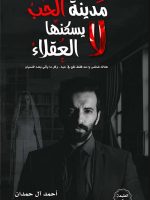




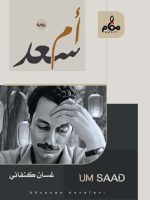
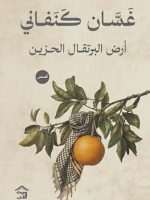
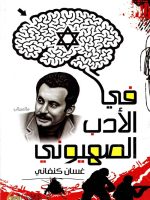
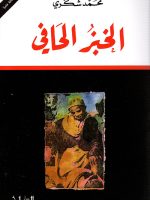
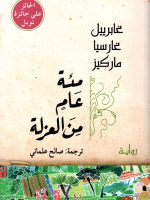
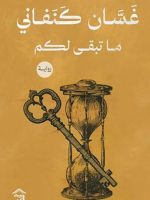
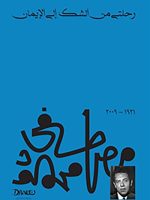
Be the first to review “Ababil Part Two Al-Jassasah”